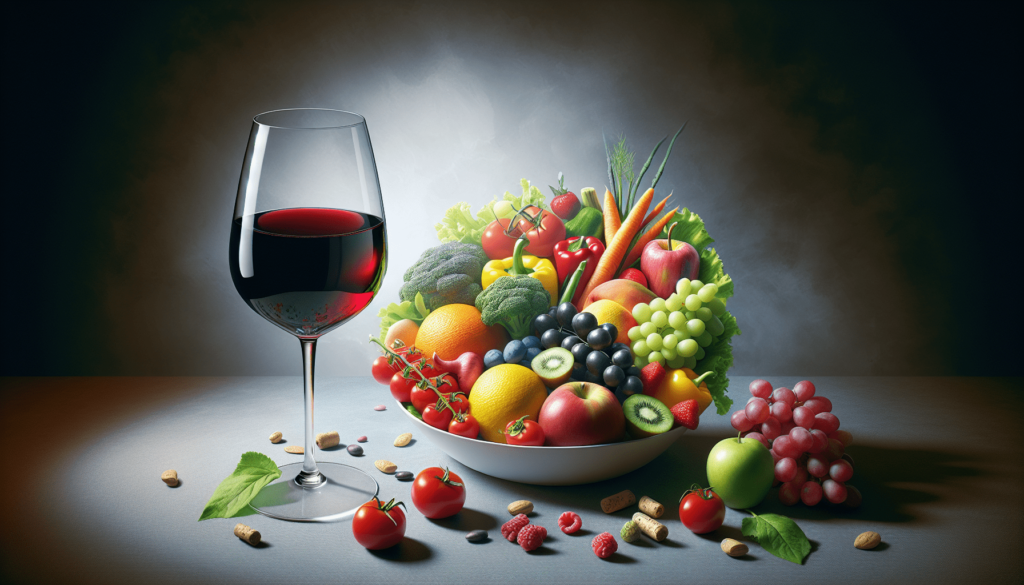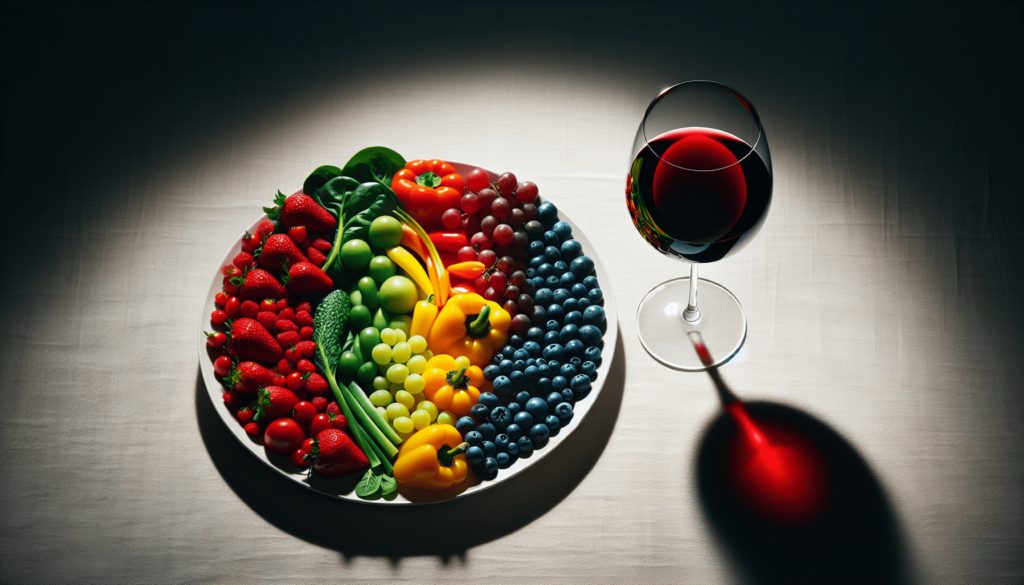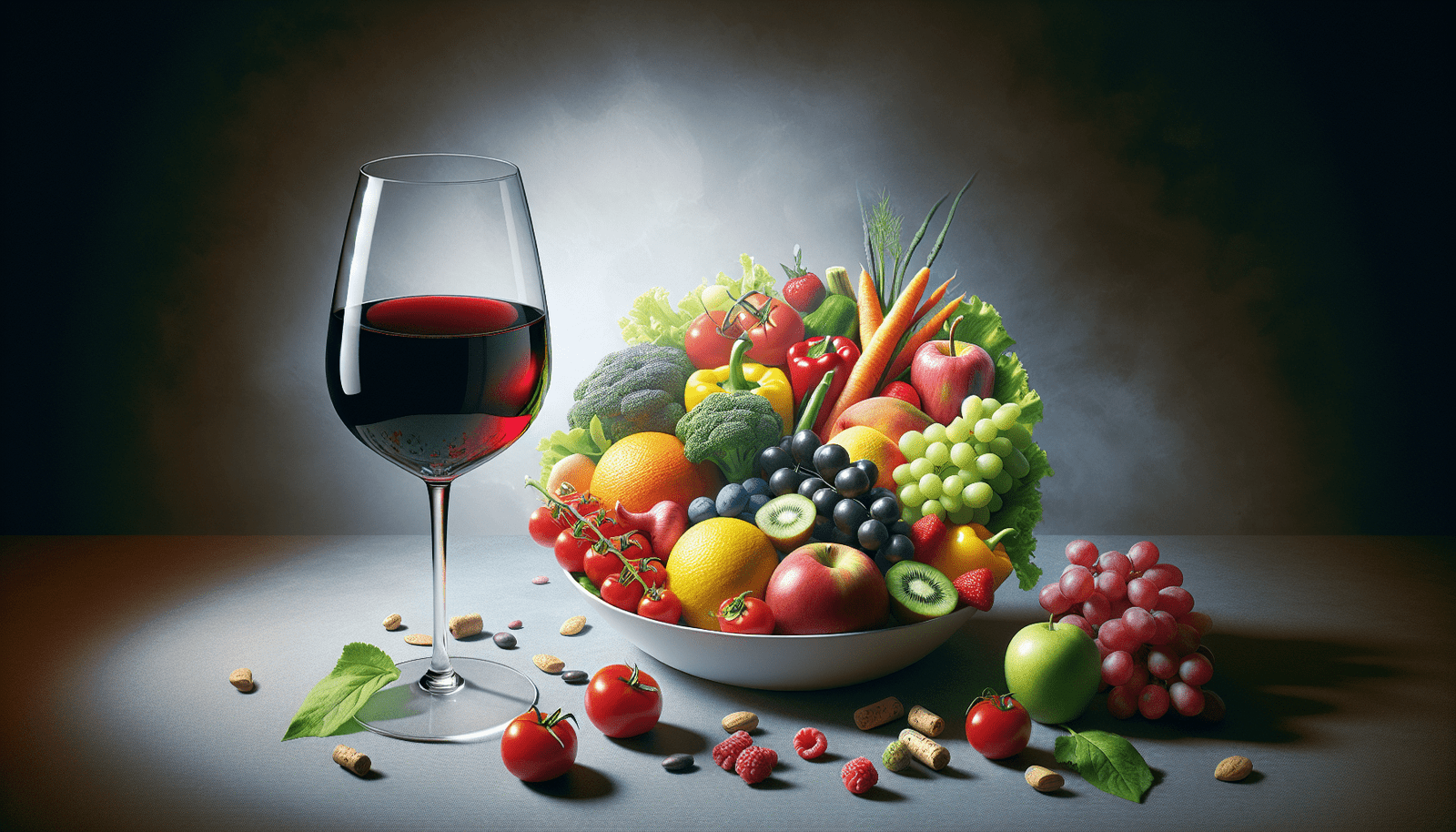The Surprising Ways Alcohol Affects Your Nutrition
You may not realize it, but the glass of wine or beer you enjoy at the end of a long day could be impacting your nutrition in ways you never imagined. Let’s dive into the surprising ways alcohol affects your nutrition and explore how you can make healthier choices without sacrificing your social life.

Understanding the Nutritional Content of Alcohol
Alcohol is often referred to as “empty calories” because it contains a significant amount of calories but lacks essential nutrients like vitamins and minerals. This means that when you consume alcohol, you are essentially consuming calories without any nutritional benefits.
It’s important to be mindful of this when making food choices throughout the day, as the calories from alcohol can add up quickly and displace more nutrient-dense foods in your diet.
Impacts on Nutrient Absorption
Alcohol can also interfere with the absorption of essential nutrients in your body. Specifically, alcohol can impair the absorption of vitamins A, D, E, and K, as well as important minerals like calcium, magnesium, and zinc.
This means that even if you are consuming an otherwise balanced diet, the presence of alcohol in your system could prevent your body from effectively utilizing these nutrients.

Disruption of Blood Sugar Levels
Drinking alcohol can also disrupt your blood sugar levels, leading to fluctuations in energy levels and mood. When you consume alcohol, your liver prioritizes metabolizing the alcohol over regulating blood sugar, which can result in hypoglycemia (low blood sugar) and symptoms like fatigue, irritability, and cravings for sugary foods.
These fluctuations in blood sugar can make it challenging to maintain a stable energy level throughout the day and can also impact your overall mood and productivity.
Influence on Metabolism and Weight Management
Alcohol consumption can also influence your metabolism and weight management efforts. The calories from alcohol are metabolized differently than calories from food, as alcohol is processed by the liver and converted into acetate, which the body uses as its primary source of energy in the presence of alcohol.
This means that when you consume alcohol, your body prioritizes breaking down the alcohol over burning fat for energy, which can slow down weight loss efforts and make it easier to gain weight over time.
Impact on Hydration and Digestion
Alcohol is a diuretic, which means that it can increase urine production and lead to dehydration. Dehydration can impact your digestion by slowing down the movement of food through your digestive system and reducing the absorption of nutrients from your food.
Additionally, alcohol can irritate the lining of your stomach and intestines, leading to symptoms like indigestion, bloating, and discomfort. This can further impact your body’s ability to properly digest and absorb nutrients from the foods you eat.
Strategies for Managing Alcohol Consumption and Nutrition
While it’s important to be mindful of how alcohol can impact your nutrition, you don’t have to completely eliminate alcohol from your life to maintain a healthy diet. Here are some strategies for managing alcohol consumption and nutrition:
1. Moderation is Key
The key to maintaining a healthy balance between alcohol consumption and nutrition is moderation. Try to limit your alcohol intake to a moderate amount, such as one drink per day for women and up to two drinks per day for men.
2. Choose Wisely
Opt for lower-calorie and lower-sugar alcoholic beverages like light beer, dry wine, or spirits mixed with soda water or fresh fruit juice. Avoid sugary cocktails and high-calorie drinks that can add unnecessary calories and negatively impact your nutrition.
3. Pair with Nutrient-Dense Foods
When consuming alcohol, try to pair it with nutrient-dense foods like lean proteins, vegetables, and whole grains. This can help balance out the empty calories from alcohol with essential nutrients from food and support your overall nutrition.
4. Stay Hydrated
To counteract the dehydrating effects of alcohol, make sure to drink plenty of water before, during, and after consuming alcohol. Staying hydrated can help support your digestion, metabolism, and overall health while enjoying alcoholic beverages.
5. Pay Attention to Your Body
Listen to your body and pay attention to how alcohol makes you feel. If you notice negative effects on your digestion, energy levels, mood, or weight, consider reducing your alcohol intake or making healthier choices when it comes to alcoholic beverages.
6. Seek Support
If you find that managing alcohol consumption and nutrition is challenging, don’t hesitate to seek support from a healthcare professional, registered dietitian, or counselor. They can provide guidance, resources, and strategies to help you make healthier choices and achieve your nutrition goals while still enjoying the occasional drink.
By understanding the surprising ways alcohol affects your nutrition and implementing strategies to manage your alcohol consumption, you can make informed choices that support your overall health and well-being. Cheers to a balanced approach to nutrition and a healthy relationship with alcohol!

